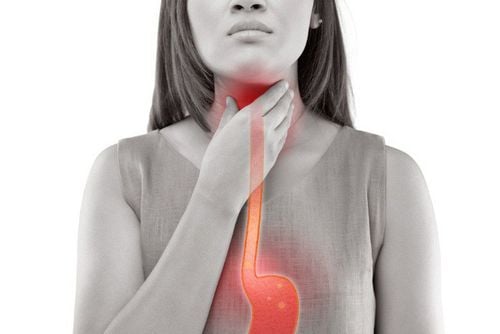Many people often wonder when the best time to drink whey protein is. This depends on the individual's goals and their physical condition. However, in general, the total amount of protein consumed throughout the day is more important than the timing of consumption.
1. When should you drink whey protein?
1.1. Before or after workouts?
To date, there’s only one study that compares the effects of protein consumption before and after workouts on the strength and size growth of the muscle.
Specifically, researchers divided 21 men into two groups, each receiving a whey protein shake containing 25 grams of protein. Group one consumed it right before workouts, while group two drank it after the session. Everyone completed full-body workouts three times a week and repeated the shake consumption for ten weeks. After the study concluded, no significant differences were found in strength or muscle size between the two groups. This result demonstrates that whether you consume protein before or after a workout does not matter. Thus, you can choose timing to consume whey protein based on what is most convenient for you.

1.2. Anabolic Window
Many believe that drinking whey protein within 30 minutes after a workout will maximize training effectiveness. This period is called the "anabolic window," during which the muscles absorb protein best for growth. According to this view, if you consume protein outside of this 30-minute window, the body will not use the protein for muscle building.
However, recent studies show that the anabolic window may extend beyond 30 minutes, or even be unlimited after working out. As mentioned before, when you drink whey protein generally does not make a significant difference in recovery and muscle development.
1.3. Before sleep
Older adults as well as those who want to build muscle, improve strength, and enhance workout performance can benefit from drinking protein before bedtime. Research indicates that consuming protein before sleep is an effective strategy for promoting muscle growth and helping individuals adapt to their training regimen. This timing can enhance digestion and absorption speed, stimulate available proteins for muscle building, and maintain recovery throughout the night.
Scientists recommend consuming 40 grams of protein before sleep to maximize muscle development and adaptation overnight. If you wish to drink protein before going to bed, consider using casein protein. Casein digests slowly, providing a steady protein supply throughout the night. Dairy products high in casein include cheese and Greek yogurt.
2. How to use whey protein based on your goals
2.1. Weight loss
Protein is one of the most essential nutrients for weight loss. A high-protein diet can boost metabolism and reduce hunger. Protein helps curb appetite by decreasing levels of the ghrelin hormone while increasing hormones like GLP-1, peptide Y, and cholecystokinin. Thus, consuming a protein-rich snack between meals can lead to reduced overall calorie intake.
One study found that individuals who snacked on high-protein yogurt in the afternoon ate 100 fewer calories at dinner compared to those who had crackers or chocolate, despite all snacks providing the same caloric content.
Therefore, an effective way to use whey protein for weight loss is to distribute it evenly throughout the day or add it to snacks between meals.

2.2. Building muscle
To build muscle and strength, you need to consume more protein than what your body has broken down during workouts. Bodybuilding athletes recommend supplementing with protein 15-60 minutes after exercising. This timeframe is referred to as the "anabolic window" and is considered optimal for the body to make the most of nutrients like protein.
However, recent research indicates that drinking whey protein at any time within two hours post-workout is ideal for building muscle mass. Note that individuals training in a fasted state—like before breakfast—may benefit from consuming whey protein right after exercising.
2.3. Preventing Muscle Loss
Maintaining muscle mass is very important as you age. Research shows that individuals over 30 years old can lose about 3-8% of their muscle mass every 10 years. This condition is also linked to an increased risk of fractures and reduced lifespan.
Scientists recommend distributing protein intake evenly throughout the day to prevent age-related muscle loss, which equates to consuming about 25-30 grams of protein per meal.
Most people tend to eat three times more protein at dinner compared to breakfast. Therefore, it's important to add high-quality whey protein to your breakfast to balance protein intake throughout the day.
2.4. Improving Workout Performance and Recovery Speed
Combining protein with a source of carbs during and after workouts can enhance performance, speed up recovery, and reduce soreness.
A study involving 11 cyclists found that consuming protein and carb drinks during exercise significantly improved recovery time and reduced muscle soreness.
For the general population, getting enough protein is more important than the timing of whey protein intake. However, athletes should know how to use whey protein right before or after workouts.

3. Daily Protein Supplementation
The recommended daily protein intake is 0.8 grams of protein per kilogram of body weight. However, those who exercise regularly need more protein than the above recommendation, around 1.6 g/kg.
For optimal results, distribute your daily protein intake across 3-4 main meals, spaced out every 3-4 hours. Whey protein is a good option for snacks between meals or for energy supplementation before and after workouts. Each scoop of whey protein typically contains about 25-30 grams of protein.
Overall, the total protein intake in daily diets closely influences muscle strength and size. Both animal and plant-based foods contain protein, with high-quality protein sources including meat, poultry, dairy, and fish. Nuts, beans, and soy are also excellent sources of plant protein.
If you can't consume enough protein-rich foods daily, protein powders are a convenient way to increase intake. The most common types of protein powder on the market include:
- Whey Protein: A dairy protein that the body absorbs quickly, making it very useful to take before or after workouts. Good-quality whey protein also contains bioactive proteins that provide additional health benefits.
- Casein Protein: Also a dairy protein but digested much slower than whey. This quality makes casein an ideal choice for long fasting periods, such as during sleep. Furthermore, each scoop of casein protein provides about 60% of daily calcium needs.
- Egg Protein: Made from pure egg whites, is digested at a moderate rate and is one of the most expensive protein supplements available.
- Soy Protein: One of the few plant proteins that contain all essential amino acids, making soy protein an excellent source for vegetarians.
- Rice and Pea Protein: While this blend lacks all essential amino acids, it makes a perfect combination. Rice and pea protein are also less allergenic, preferred by those allergic to eggs, milk, or soy.
Many worry that consuming too much protein could harm health, specifically concerning kidney disease and osteoporosis. However, there is no evidence showing that a high-protein diet negatively affects healthy individuals. In fact, it can improve bone health, increase bone mineral density, and reduce fracture risk. Therefore, unless a doctor or nutritionist advises you to limit protein intake, most people need not worry about a high-protein diet.
Protein plays a crucial role in repairing and rebuilding muscles after workouts. However, research indicates that the timing of whey protein intake is not critical. What's more important is the total protein consumed daily from food sources and supplements. Healthy individuals generally do not face health risks if they manage how they use whey protein alongside a high-protein diet.
To enhance the quality of medical examinations and treatments, Vinmec International General Hospital has implemented a modern, standards-compliant equipment system to operate its examination and treatment processes. Notably, Vinmec always has a team of doctors and medical staff ready to listen, advise, and treat various conditions as well as provide nutritional guidance and recommendations for healthy foods for children, adults, and the elderly.
To arrange an appointment, please call HOTLINE or make your reservation directly HERE. You may also download the MyVinmec app to schedule appointments faster and manage your reservations more conveniently.













